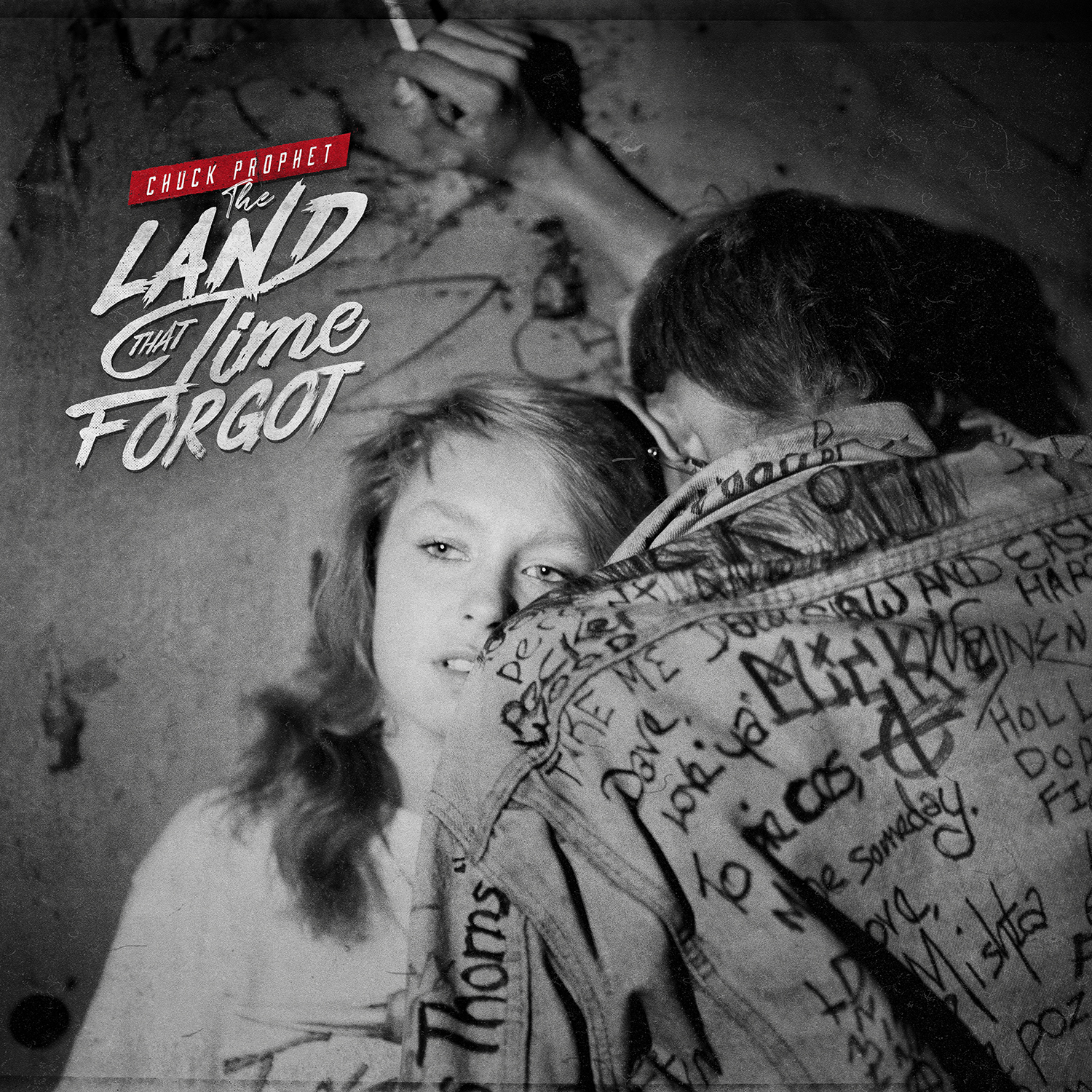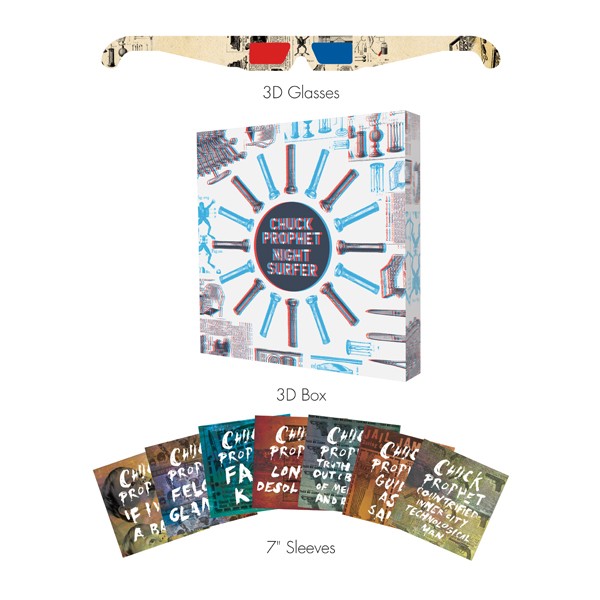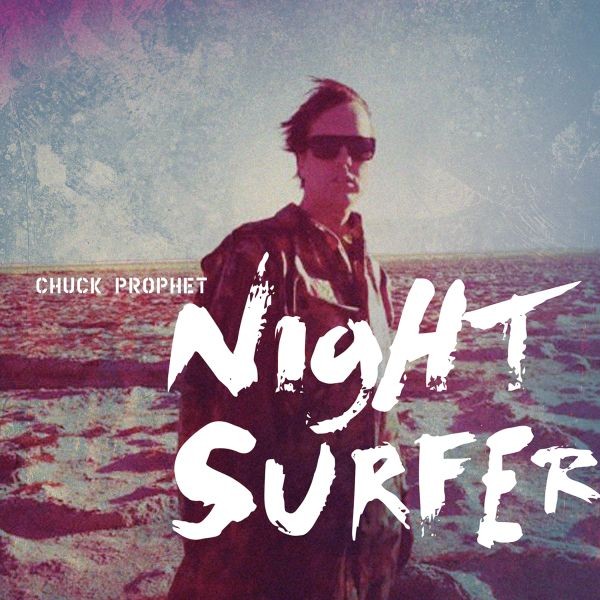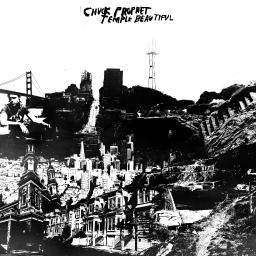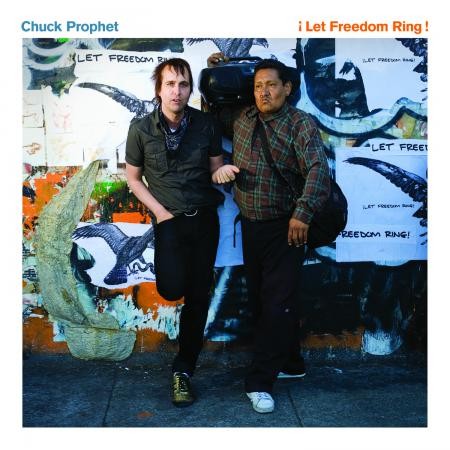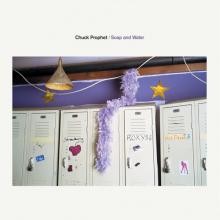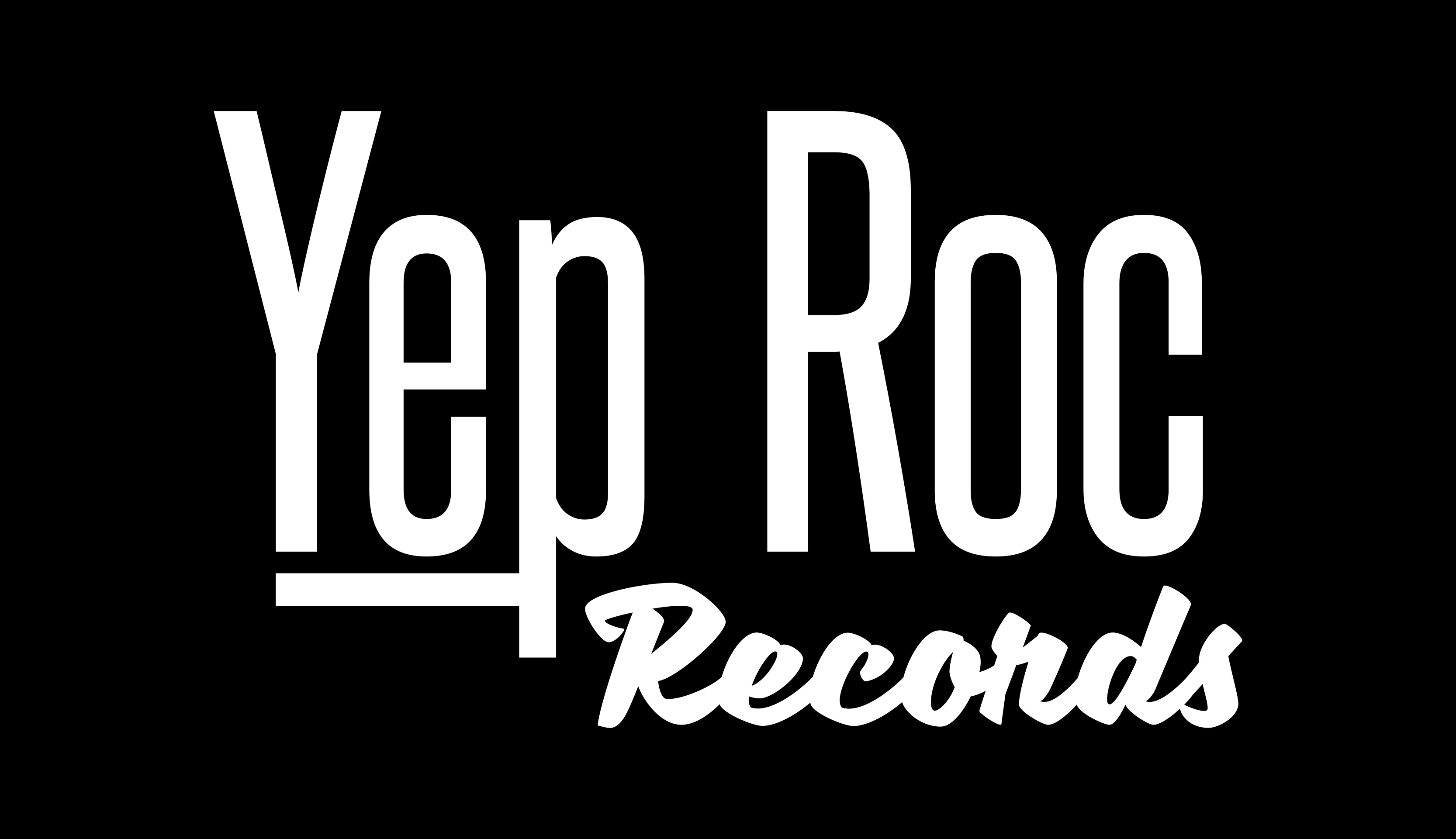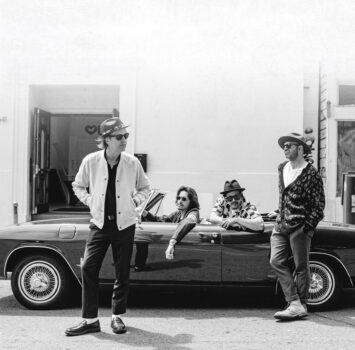
.........................................................
For twelve long days, Chuck Prophet waited. A stage four lymphoma diagnosis had knocked the wind out of him, dragged him off the road and into surgery, and now here he was, a perpetual motion machine forced to sit still, confronting his mortality for the first time as he wondered if he’d live long enough to see the end of the year, let alone get back on tour.
“I was going through a tunnel,” he recalls. “It was dark. But I had music: music to play, music to listen to, music to get me out of my head. Music was my savior.”
That much is plain to hear on Wake The Dead, Prophet’s extraordinary—and unlikely—new album. Recorded with ¿Qiensave?, a band of brothers from the Central Coast farming community of Salinas, California, the collection dives headfirst into the world of Cumbia music, which consumed and comforted Prophet during his illness and subsequent recovery. The songs are intoxicatingly rhythmic, all but demanding you move your body while you listen, with arrangements that blur the lines between tradition and innovation, between past and present, between cultures and countries. There are flashes of rock and roll, punk, surf, and soul, all filtered through the streets of San Francisco and wrapped up in the rich legacy of a genre that traces its roots back hundreds of years and thousands of miles.
“Some say this music started in the jungles of Peru and Colombia,” Prophet explains. “Then it really caught fire in the 1960s. In fact, there was such a demand for Cumbia in Mexico that DJs would travel to Colombia just to bring records back. Now that’s trafficking I can get behind!”
While Cumbia’s exact origins are debated, such details are in many ways irrelevant to Wake The Dead. Prophet approaches the music not as an academic or an historian, but as a fan with a voracious appetite and an insatiable curiosity. The result is a profoundly adventurous celebration of life that balances hope and fear in equal measure, a rich and exultant meditation on what really matters from an artist who always manages to find the light, even in the face of the most oppressing darkness.
“At one time I felt immortal,” Prophet muses. “Or at least something like it. Remember that age? You’re trying to figure it out. And you’ve got time to do it. You have your whole life in front of you. And in all your young and dumb glory, you’re spending it like you’ve got an endless supply. But all that stupidity stacks up. The meter is running and it’s expensive. And now I can see mortality in the distance, rushing toward me.”
Prophet’s illness arrived amidst a streak of more than a dozen critically acclaimed solo albums stretching all the way back to 1990, when the California native first shifted focus from his tenure with pioneering neo-psych band Green on Red to working under his own name. Since then, Prophet’s songs have appeared in a slew of films and television shows, and his work has been covered by Bruce Springsteen, Solomon Burke, Heart, and a host of others. Rolling Stone dubbed him a “streetwise city kid with an eye for the country,” while Uncut proclaimed him a “renaissance-rocker,” and NPR declared that “no one can turn tales from the outer limits into catchy songs quite like Prophet does.” Decades of relentless touring and bold artistic reinvention came to a screeching halt in 2022, though, when doctors found a mass in Prophet’s intestine.
“I don’t know if you know what it feels like to have fear driven into you like a stake,” Prophet says, “but that’s one way to describe the waiting part. Traumatic is another.”
For nearly two weeks, Prophet waited for the results from an initial procedure meant to gauge the severity and progression of his disease. Anxiety kept a tight grip through those long days and nights, but music offered a reprieve, particularly the Cumbia music Prophet had become obsessed with since he’d first encountered it in a club in the Mission a few years earlier.
“I used to play this place called The Make-Out Room on Saturday nights, and afterwards, while we were breaking down our stuff, they’d clear the house for Cumbia night,” Prophet recalls. “I remember the first time I experienced it; the DJ was playing these amazing records and the subs were cooking and the bass lines were filling up the room and everyone was dancing. Even now, I can see my drummer, Vicente Rodriquez, showing my wife, Stephanie, a couple of moves. The place was packed, and watching the crowd sway to the music was just glorious. I didn’t want the night to end.”
Prophet became an evangelist, collecting old vinyl from Latin America and loading his friends up with new mixes every time they came to visit. More than any other genre, Cumbia served as a faithful musical companion for Prophet during his bout with lymphoma, which doctors ultimately discovered was treatable with a combination of immunotherapy and chemotherapy.
“I had a lot of time to just sit and listen while I was sick,” he explains. “When I finally got to feeling better, I started driving the Ford Econoline down to Santa Cruz to surf, and then I’d cruise over to Salinas to jam with this Cumbia band called ¿Qiensave? that I’d fallen in love with.”
The sessions came together on a whim, for the sheer fun of it at first, but Prophet soon invited the band to back him up at a couple of live shows, and the immediate reaction from audiences made it clear they were on to something special.
“One of the things I love most about Cumbia music is that it’s all about the dancing,” Prophet explains. “It’s as much about the audience as the musicians. When punk rock came along, it erased the line between the stage and the crowd, and Cumbia has a similar effect of breaking down those barriers and bringing everyone together in the moment.”
Prophet knew that meant there was only one way to capture the new Cumbia-inspired songs he’d been writing (many penned with frequent collaborator klipschutz), so he invited members of ¿Qiensave? into the studio in Oakland, where they blended with Prophet’s longtime backing band, The Mission Express, to track the heart of Wake The Dead live on the floor. It was chaotic at times, cramming as many as eight musicians into the same studio space, but they prioritized gut feeling over sonic perfection and allowed the undeniable energy of the performances to guide them.
“I had the songs sketched out, but we didn’t really rehearse most of them before we started recording,” says Prophet. “With so many people in the studio, I had to pull back from my natural instincts to be an arranger and just learn to let go.”
Learning to let go is at the core of Wake The Dead, which frequently reckons with forces beyond our control. “Gonna wake the dead / Get them on their feet,” Prophet promises at the top of the exhilarating title track, and what happens next is anyone’s guess. “We might have ourselves a picnic / We might end up on the moon / They might even name a planet after me.” The buoyant “Betty’s Song” navigates the liminal space between dreams and reality as it paints a portrait of a working class child of immigrants striving to transcend her circumstances, while the hopelessly romantic “Give The Boy A Kiss” contemplates loss and eternity with a timeless Ricky Nelson-meets-Santo & Johnny sound, and the melancholy “First Came The Thunder” follows a lonesome lover chasing down a memory that hangs perpetually out of reach.
“I never want to be a downer,” Prophet reflects. “This record doesn’t shy away from darkness, but it always feels hopeful. When I was growing up listening to The Clash and their flirtations with reggae, the thing I remember most is how the music hit me, how it made me feel. The more you listened, the more was revealed, but on the most fundamental level, those records just felt good, and that was really important to me with this album.”
Even at its heaviest, Wake The Dead is still built on addictive grooves, infectious bass lines, and instantly memorable melodies. The apocalyptic “Sally Was A Cop” (co-written with Alejandro Escovedo) lands an improbably satisfying hook inside a grisly examination of cartel violence; the sardonic “In The Shadows (For Elon)” leaps and twirls with playful Farfisa even as it exorcises frustrations with a corrupt society which caters to the rich and powerful; and the 6/8, doo-wop-tinged “One Lie For Me, One For You” slow dances its way through the wreckage of a broken heart.
“There’s something about dancing that’s life affirming,” says Prophet. “It’s a means of personal expression and celebration and human connection no matter where you come from or what language you speak. I might not be able to explain the rhythmic anatomy of what happens when we’re taking Cumbia and mixing it with bits of bolero and Tejano music and rock and roll, but when I see people dancing to it, that’s something I understand.”
Like so many of life’s little joys, it’s something Prophet—who’s in full remission—appreciates now more than ever. “It’s a good day to walk on water / Good day to swallow your pride,” he sings in the album’s final moments. “Good day to call your mother / Oh, it’s a good day to be alive.”
On Tour:
Media:
Links:
WEBSITE FACEBOOK TWITTERYep Roc Discography:
